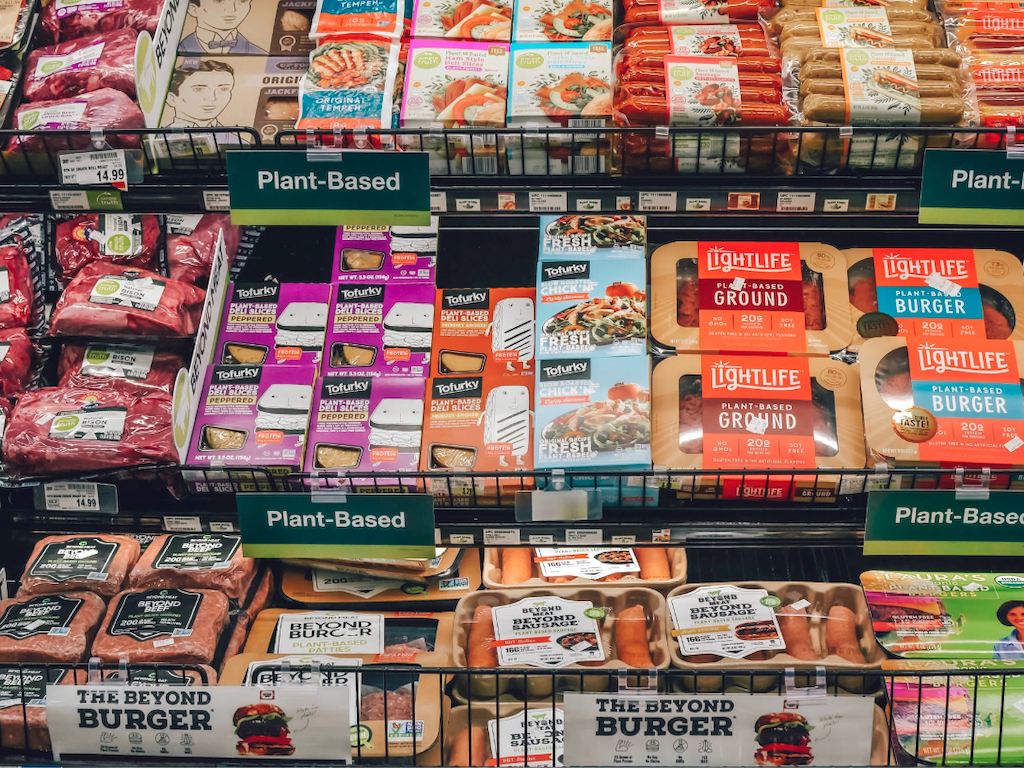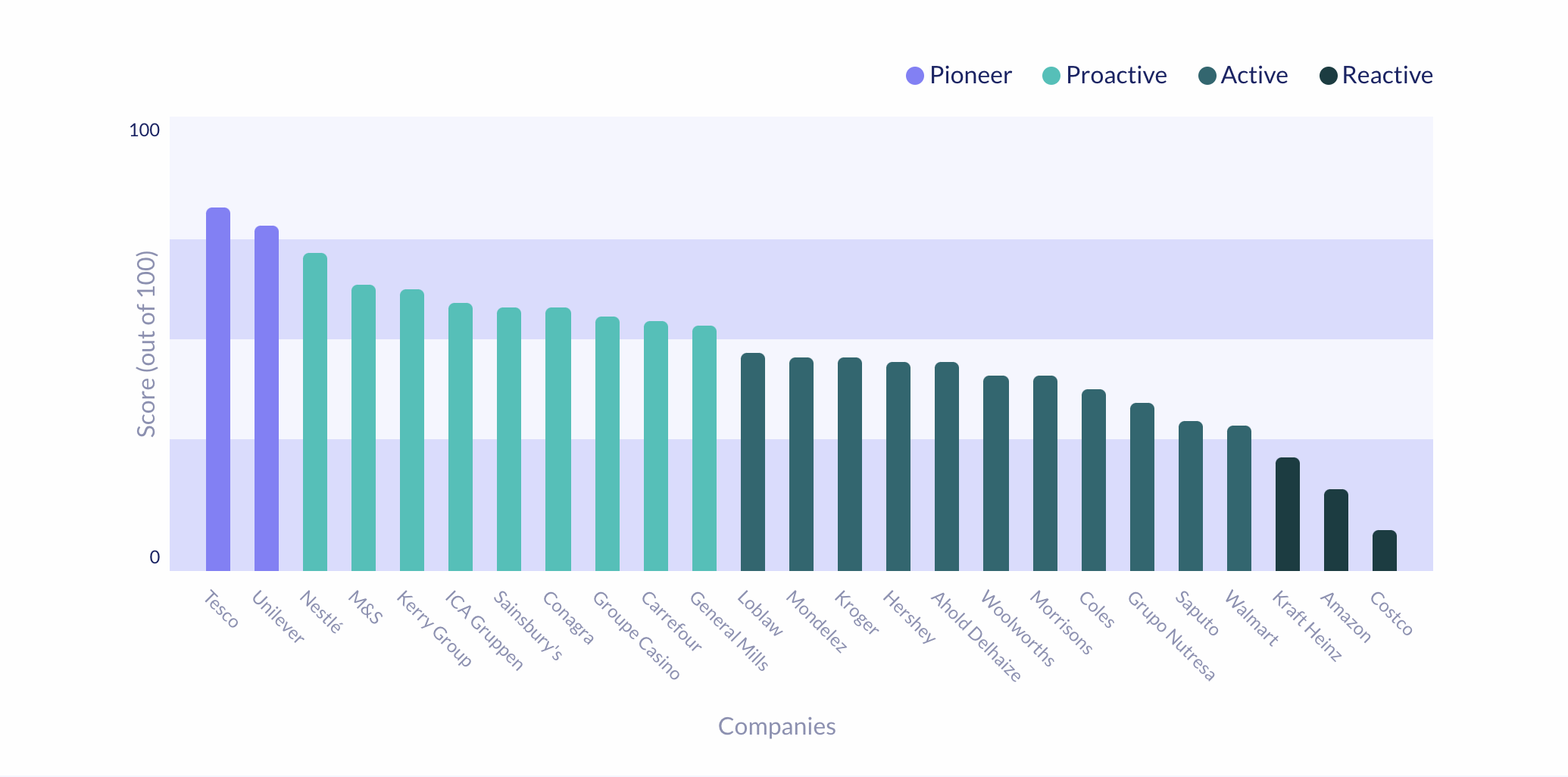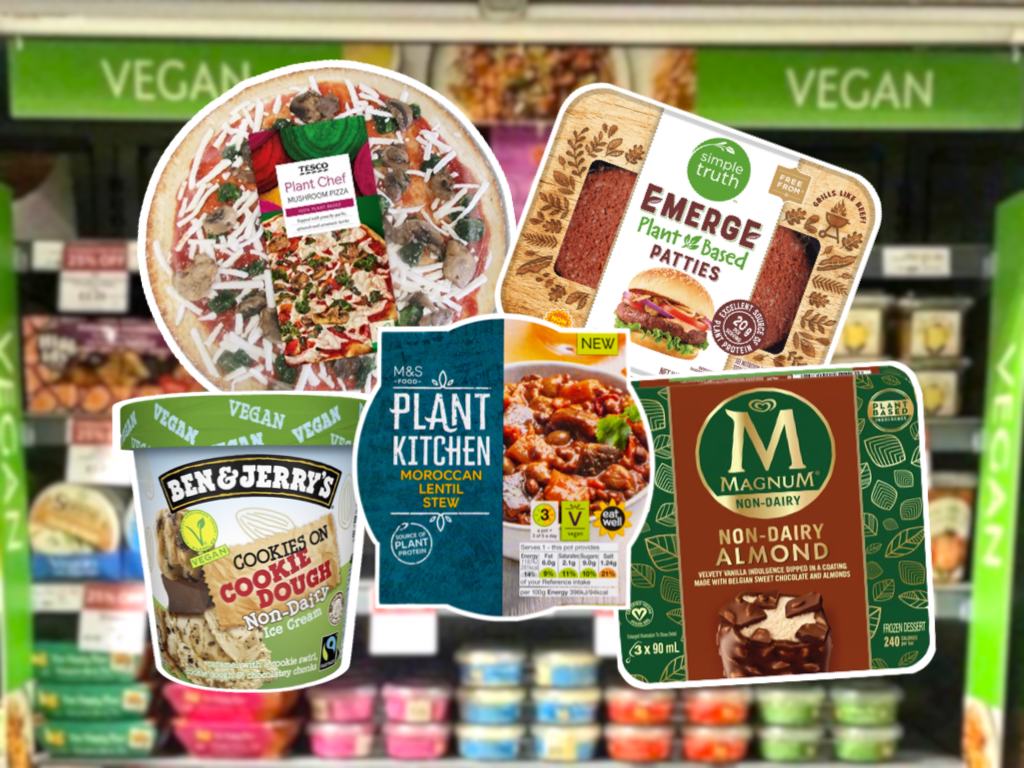3 Mins Read
A new report by collaborative investor network FAIRR has found that nearly half of the world’s biggest food retailers and manufacturers have set up teams dedicated to developing and selling plant-based food products. Tesco and Unilever ranked the highest in terms of its commitment to shifting its portfolio towards plant-based, according to the analysis.
40% (2 in 5) of Big Food companies have dedicated plant-based R&D/Sales teams
The report, titled Appetite for disruption: a second serving, contains data from a four-year investor engagement with 25 food giants. It finds that two in five food retail and manufacturing titans now have dedicated plant-based teams working exclusively on creating and selling plant-based products and meat and dairy substitutes.
Tesco & Unilever are planet-forward leaders on supply chain front
In terms of company ranking, Tesco and Unilever topped the list for actively diversifying plant-based protein as a part of its climate-aligned growth strategies, with Nestlé and Marks & Spencer following closely behind.
When looking at the companies that have set up dedicated human resources for plant-based product development, the report highlighted Kroger, Coles, Marks & Spencer, Sainsbury’s and Tesco.
Alternative protein has officially gone mainstream

This report shows that 2020 is set to be a watershed in the shift from animal proteins towards plant-based and new protein sources. The protein transition has gone mainstream.
Jeremy Coller, Founder of FAIRR
Retailers are flooding the meat aisle with plant-based alternatives
Of the retailers, 7 out of 15 now sell or plan to sell plant-based meat substitutes “on the meat aisle” in stores, while half of the manufacturers have teams to develop new plant-based protein products. Separately, a study by Kroger and the Plant Based Foods Association (PBFA) found that sales of vegan meat increased 23% when sold in the conventional meat aisle.
“This [is] evidence that the world’s biggest supermarkets and food-makers are vying for their slice of the plant-based pie,” said Jeremy Coller, founder of FAIRR.
“They are drastically scaling-up and skilling-up their capacity to research and develop plant-based alternatives to meat and dairy, and tangible goals for a protein transition are being put in place.”
Alt protein has received over US$ 1 billion in investment to date this year
Other key findings in the report include the fact that over US$1.1 billion of investment has gone into alternative proteins within the first half of this year alone, marking a doubling of the figure recorded in the same period last year.

This [is] evidence that the world’s biggest supermarkets and food-makers are vying for their slice of the plant-based pie.
Jeremy Coller, Founder of FAIRR
“This report shows that 2020 is set to be a watershed in the shift from animal proteins towards plant-based and new protein sources,” added Coller. “The protein transition has gone mainstream.”
Earlier in June, FAIRR issued another report warning investors that meat, fish and dairy companies are now highly risky investments due to its failure to comply with environmental, social and governance (ESG) disclosures, making them particularly vulnerable amid the coronavirus pandemic and the post-coronavirus world.
While the financial future of the meat industry is dire, the report found that the coronavirus has given rise to new medium-term investment opportunities. The pandemic, which has shifted consumer preferences towards more sustainable, crisis-resilient and safer alternative proteins, has meant that plant-based companies will see strong growth, a trend that many investors are already capitalising on.
Lead image designed by Green Queen Media.




